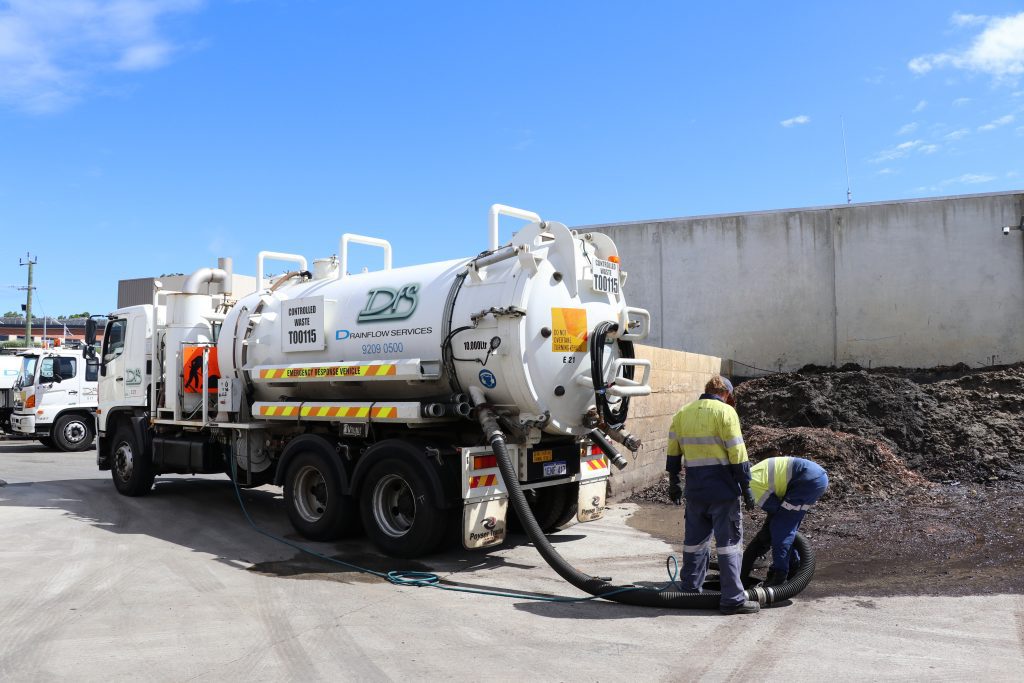Little Known Facts About Reclaim Waste.
Little Known Facts About Reclaim Waste.
Blog Article
Not known Incorrect Statements About Reclaim Waste
Table of ContentsThe Best Strategy To Use For Reclaim WasteTop Guidelines Of Reclaim WasteNot known Details About Reclaim Waste The Basic Principles Of Reclaim Waste Rumored Buzz on Reclaim Waste
Discover the types, occurrences, and kinds of liquid waste. Residential sewage waste refers to the waste and items from a household septic system. This kind of waste is developed by people in houses, institutions, and other buildings. This only consists of septic systems that have a drain area. The proper management and disposal of residential sewer waste need liquid waste to be transferred to a sewer therapy plant where the appropriate methods and devices are used to purify and take care of waste.
Business waste often consists of prospective risks, such as flammable products or a combination of liquid and strong waste products, and needs an advanced and comprehensive disposal procedure. The disposal of commercial waste commonly involves the filtering of waste prior to transport to guarantee risk-free and proper disposal. Hazardous waste is produced from results and runoff of commercial processes and manufacturing.
This kind of waste can not utilize the same sewer monitoring transport or processes as septic or business fluids. The industrial waste administration process requires the examination and screening of liquid waste prior to it undergoes the disposal process (liquid waste removal). Overflow waste is the fluid waste that originates from drainage and excess stormwater in very booming locations or cities
Drainage waste can create contamination and flooding otherwise handled properly. Learn extra concerning drain cleansing and waste administration. Making sure appropriate waste administration can avoid catastrophes and minimize environmental harm. Both individuals in domestic setups and specialists in business or manufacturing markets can take advantage of recognizing the procedures and policies of fluid waste management.
Reclaim Waste Fundamentals Explained
Contact PROS Solutions today to learn more about our waste administration and disposal solutions and the proper means to care for the liquid waste you generate.
(https://www.goodreads.com/user/show/183557660-leon-aube)Do you recognize what occurs to your water when you draw the plug, flush the commode or drain the cleaning maker? No? Well, it deserves knowing. This supposed 'wastewater' is not only an essential resource however, after treatment, will be launched to our land, rivers or the ocean. Made use of water from bathrooms, showers, bathrooms, kitchen area sinks, washings and industrial processes is recognized as wastewater.

water made use of to cool down equipment or tidy plant and equipment). Stormwater, a type of wastewater, is runoff that streams from agricultural and metropolitan areas such as roofings, parks, yards, roads, paths and seamless gutters into stormwater drains, after rainfall. Stormwater moves unattended straight to regional creeks or rivers, eventually getting to the sea.
All about Reclaim Waste
In Queensland, a lot of wastewater is dealt with at sewer therapy plants. Wastewater is transferred from domestic or industrial websites through a system of drains and pump terminals, called sewerage reticulation, to a sewage therapy plant. Regional federal governments construct, maintain and run most sewer therapy plants. Operators are certified under the Environmental Management Act 1994 to release treated wastewater at an acceptable environmental standard right into rivers.
The Division of Natural Resources advises local federal governments about managing, operating and maintaining sewerage systems and therapy plants. In unsewered locations, city governments may require householders to mount individual or family sewage treatment systems to treat residential wastewater from commodes, cooking areas, restrooms and laundries. The Division of Natural Resources authorizes using house systems when they are proven to be effective.
In some brand-new neighborhoods, therapy go to my blog of some stormwater to get rid of trash, sand and crushed rock has started utilizing gross toxin catches. Wastewater treatment takes place in four stages: Eliminates solid issue.
Wastewater then moves right into large containers where solids work out and are gotten rid of as sludge. Grease and residue are skimmed from the surface area. Utilizes little living organisms knows as micro-organisms to break down and get rid of staying liquified wastes and fine fragments. Micro-organisms and wastes are included in the sludge. Removes nitrogen and phosphorus nutrients that might trigger algal blooms in our rivers and threaten aquatic life.
Reclaim Waste - The Facts
Nutrient elimination is not available at all sewer treatment plants because it requires pricey specialised equipment. It is becoming a lot more usual in Queensland. Clear fluid effluent created after treatment might still include disease-causing micro-organisms. If this effluent is released right into waterways such as rivers or the sea, the micro-organisms will eventually die out.

A lot of wastewater flows into the sewage system. Under the Act, regional governments carry out approvals and permits for ecologically pertinent activities (Periods) including wastewater launches that might have a neighborhood impact.
Indicators on Reclaim Waste You Should Know
Or else, examples are considered research laboratory analysis. Usually numerous examinations are required to develop the degrees of each of the different contaminants such as oils, hefty steels and chemicals in water. Monitoring provides factual information regarding water top quality and can validate that permit conditions are being met. The info acquired with monitoring provides the basis for making water quality decisions.
Report this page